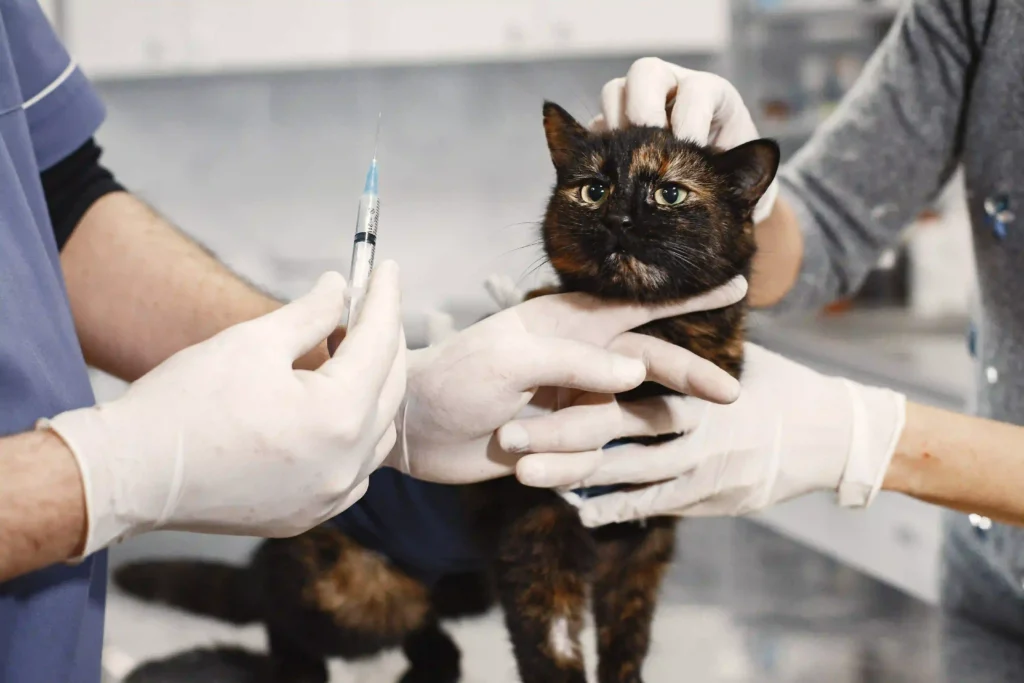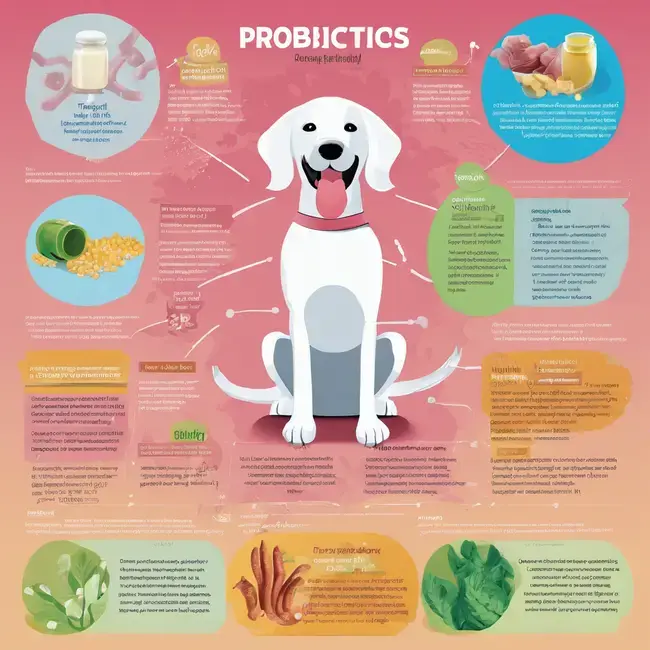Is Celery Good for Dogs? Discover The 7 Key Health Benefits

- Can dogs eat celery?
- Is celery good for dogs?
- How much celery can dogs eat?
- Nutritional facts of celery for dogs
- Health benefits of celery for dogs
- Can dogs eat cooked celery?
- Can dogs eat raw celery?
- Can dogs eat celery leaves?
- Can dogs eat celery with peanut butter?
- Celery for dogs’ teeth
- Potential risks of celery for dogs
- Other foods (veggies and fruits) for dogs
- Conclusion
- Frequently Asked Questions (FAQs)
This post may contain affiliate links, meaning I may earn a commission if you make a purchase, at no extra cost to you. I only recommend products I trust. Thank you for your support.
When it comes to considering the dietary options for our dogs, the question of whether certain human foods are safe for dogs often arises.
As a conscientious pet owner, it’s crucial to understand which foods are beneficial or potentially harmful to our dogs, such as the common question: is celery safe for dogs to eat? and, can dogs eat celery?
So, let’s delve into the question of whether celery is a suitable addition to your dog’s diet and explore the potential benefits and considerations associated with feeding celery to your beloved pet.

Can dogs eat celery?
Yes, dogs can safely eat celery when given in moderation. Celery is a low calorie veggie packed with essential nutrients, including vitamins A, C, and K, as well as fiber, potassium, and antioxidants.
Please note that while celery can be a tasty and nutritious treat for your furry friend, it should not replace your dog’s balanced diet and should constitute no more than 10% of your dog’s daily calorie intake, always opt for organic produce to minimize pesticide exposure.
Is celery good for dogs?
Yes, celery is good for dogs as it is rich in essential nutrients and anti-inflammatory properties which aid in reducing joint health, potentially benefiting dogs with arthritis.
Celery can indeed be a healthy addition to your dog’s diet, offering several benefits when given in moderation. Feeding large quantities of celery to your dog may lead to digestive issues such as diarrhea or upset stomach.
Feeding celery to your dog should be done cautiously, cut into small and edible pieces while considering their size and dietary needs.
Plain, unseasoned celery is the best option for your dog, and it can be served raw, cooked, or even frozen as a healthy treat.
How much celery can dogs eat?
The amount of celery a dog can eat depends on their size and weight and it should never replace a balanced meal, comprising no more than 10% of their daily food intake.
- For very small dogs weighing less than 20 pounds, offer 1-2 pieces of celery (each about ½ inch long and ¼ inch thick)
- Small dogs weighing 21-30 pounds can have 2-3 pieces of celery (each about 1 inch long and ¼ inch thick)
- Medium-sized dogs weighing 31-50 pounds can also have 2-3 pieces of celery (each about 1 inch long and ¼ inch thick)
- For larger dogs weighing 51-90 pounds, a small handful of celery pieces (each about 1 inch long and ¼ inch thick) is suitable.
- Very large dogs weighing 91 pounds or more can have a handful of celery pieces (each about 1 inch long and ¼ inch thick)
Nutritional facts of celery for dogs
These nutritional components contribute to the benefits of celery for dogs, such as providing hydration, supporting digestion, and reducing inflammation due to its high water content, vitamins, and minerals.
1 cup serving of raw chopped celery of approximately 101 grams includes:
- Calories: 16
- Carbohydrates: 3 grams
- Fiber: 1.6 grams
- Sugars: 1.9 grams
- Protein: 0.7 grams
- Fat: 0.2 grams
- Vitamin A: 494 IU (10% of daily value)
- Vitamin C: 3.1 mg (5% of daily value)
- Vitamin K: 32.2 mcg (41% of daily value)
- Folate: 36.5 mcg (9% of daily value)
- Potassium: 262 mg (7% of daily value)
- Calcium: 44.6 mg (4% of daily value)
- Magnesium: 8.1 mg (2% of daily value)
Health benefits of celery for dogs
There are numerous benefits of celery for dogs as noted below:
1. Rich in Nutrients
Celery is rich in essential nutrients like vitamins A, C, and K, as well as thiamin, riboflavin, niacin, and B5. These nutrients contribute to healthy skin and coat, while also bolstering your dog’s immune system.
2. Weight Management
Due to its low-calorie content (only seven calories per stalk), veterinarians recommend incorporating celery into a dog’s diet as an occasional treat, particularly for overweight or obese dogs.
3. Supports Digestive Health
The fiber in celery for dogs helps ensure that your dog’s digestive system functions properly, although it’s important to avoid overfeeding as excessive fiber can lead to digestive issues.
4. Supports Joint Health
Celery’s anti-inflammatory properties can potentially help decrease joint inflammation in dogs with arthritis, making mobility easier for your pet.
5. Hydration
With a high water content of 95%, celery is an excellent source of water, which can help keep your dog hydrated, especially during hot summer months.
6. Boosts Dental Health
Chewing on celery sticks can help remove plaque and tartar, leading to improved dental health for your dog. The crunchy texture of celery stimulates saliva production, which may also help freshen your dog’s breath.
7. Vision Support
Celery, being rich in vitamin A, is beneficial for vision support in dogs. Vitamin A is essential for maintaining good eyesight, and celery’s vitamin A content can contribute to your dog’s ocular health.
Can dogs eat cooked celery?
Yes, dogs can eat cooked celery in moderation. Cooked celery can make it easier for dogs to digest, especially for those with sensitive stomachs. However, it’s important to note that cooking can reduce some of the nutrients present in raw celery.
When feeding cooked celery to dogs, ensure that it’s plain and free from added spices, seasonings, or oils, which can be harmful to dogs.
To prepare cooked celery for dogs, you can steam or boil it until tender. Avoid using excessive salt or other seasoning agents. Cut the celery into small, bite sized pieces suitable for your dog’s size to prevent choking hazards.

Can dogs eat raw celery?
Yes, dogs can eat raw celery in moderation. In fact, many dogs enjoy the crunchy texture and refreshing taste of raw celery. Raw celery sticks can serve as a healthy and low calorie snack for your pup.
However, it’s important to consider a few factors when feeding raw celery to dogs:
- Choking Hazard: Raw celery’s stringy texture can pose a choking risk, especially for small or fast-eating dogs. To reduce this risk, cut celery into small pieces.
- Digestive Sensitivity: Some dogs may have sensitive stomachs, so introduce raw celery slowly and monitor your dog for any digestive issues like diarrhea or gas.
- Wash Thoroughly: Before feeding raw celery to your dog, wash it thoroughly to remove any dirt, pesticides, or contaminants that may be present on the surface.
Can dogs eat celery leaves?
Yes, dogs can eat celery leaves, but it’s essential to take certain precautions. While celery leaves contain the most vitamins and minerals, they can also harbor pesticides.
Therefore, if you plan to feed your dog celery leaves, ensure they are organically grown or cleaned properly. Additionally, it’s crucial to chop the leaves into bite-sized pieces to prevent any choking hazards.
Can dogs eat celery with peanut butter?
Yes, dogs can eat celery with peanut butter as a special treat. Peanut butter is often used to make dog treats more appealing, and when paired with celery, it can create a nutritious snack that also keeps dogs entertained.
However, it’s crucial to use xylitol free peanut butter, as xylitol, a common sweetener, is harmful to dogs.
When serving celery with peanut butter, it should be given in moderation, and the peanut butter should be spread in small amounts into the crevice of each celery piece to avoid overconsumption.
Celery for dogs’ teeth
Celery is beneficial for a dog’s oral health. Chewing on celery sticks can help remove plaque and tartar buildup, promoting better dental health.
It also stimulates saliva production, which can help neutralize harmful bacteria in your dog’s mouth. Incorporating celery into your dog’s diet can be a great way to support their oral hygiene.
However, it’s important to note that celery should not replace a proper oral hygiene routine for dogs. Their teeth still require regular brushing with doggie toothpaste and a toothbrush.
Potential risks of celery for dogs
While celery can be a healthy treat for dogs when given in moderation, there are potential risks to be aware of celery for dogs:
1. Choking Hazard
Celery, especially the stringy parts, can pose a choking risk, particularly for small dogs or those who tend to gulp their food without chewing it properly.
2. Digestive Issues
Feeding a dog too much celery can lead to digestive problems such as diarrhea or upset stomach due to its high fiber content.
3. Pesticides and Additives
Celery, if not properly washed, can contain pesticides or other additives that may be harmful to dogs. It’s important to thoroughly wash celery before offering it to a dog.
4. Allergies
Some dogs may be allergic to celery, so it’s important to monitor them closely when introducing it into their diet.
5. Sodium Content
While celery itself is low in sodium, excessive consumption of salty foods, including celery with added salt, can be harmful to dogs.
Other foods (veggies and fruits) for dogs
Dogs can benefit from a variety of vegetables and fruits in their diet, providing essential vitamins, minerals, and fiber.
Here are some other examples:
1. Shrimp
Shrimp is high in protein and low in fat. When offering shrimp to your dog, it should be thoroughly cooked, unseasoned, and served in moderation to avoid any potential adverse reactions.
2. Cantaloupe
Cantaloupe is a hydrating fruit that contains vitamins A and C, as well as fiber. Dogs can enjoy small amounts of ripe, fresh cantaloupe, with the seeds and rind removed to prevent choking hazards.
3. Pineapple
Pineapple is packed with vitamins, minerals, and enzymes that can be beneficial for a dog’s digestion. Fresh pineapple chunks, with the tough core and skin removed, can be given to dogs as an occasional treat.
4. Broccoli
Broccoli is rich in fiber and vitamin C. It’s best to offer it in small, bite-sized pieces, either raw or steamed, and avoid seasoning it with any harmful ingredients, such as garlic or onions.
5. Bananas
High in potassium and vitamins, bananas can be a source of natural energy and can be offered in moderation due to their sugar content.
6. Cauliflower
Cauliflower is a healthy vegetable for dogs that provides vitamins, minerals, and fiber and can be served cooked or raw as long as it is washed thoroughly.
Conclusion
So, is celery good for dogs? Yes, celery is a safe and nutritious healthy addition to a dog’s diet when fed in moderation and prepared appropriately.
Its high fiber content and natural crunch can contribute to a dog’s oral health by promoting saliva production and aiding in the removal of plaque and bacteria.
However, it’s crucial to cut raw celery into manageable pieces, introduce it gradually, and ensure it makes up only a small portion (10% or less) of the dog’s overall diet. Additionally, cooked celery can be an alternative for dogs with difficulty chewing raw celery.
When considering introducing celery to a dog’s diet, consulting a veterinarian is recommended, especially if the dog has specific dietary requirements or health concerns.
Ultimately, when handled with care, celery can be a safe and nutritious treat for your dog(s).
- Can dogs eat raw chicken?
- Is olive oil good for dogs skin?
- Can dogs eat peas?
- Can dogs eat rice?
- Pancreatitis in dogs
- Best probiotics for dogs
- 1600 calorie meal plan
- 1400 calorie meal plan
Frequently Asked Questions (FAQs)
Can dogs eat celery stick ends?
Yes, dogs can eat celery stick ends. However, make sure to trim off any tough or fibrous parts that may be difficult for your dog to chew and digest.
Can dogs eat celery root?
Yes, celery root, also known as celeriac, is safe for dogs to eat. It can be cooked and mashed or grated to add variety to your dog’s meals.
Can dogs eat celery while on a diet?
Yes, celery is a great option for dogs on a diet due to its low calorie content. It can provide a satisfying crunch without adding excessive calories to their meals.
Can dogs eat celery with carrots?
Yes, dogs can eat celery with carrots. Both vegetables are safe and nutritious for dogs, and they can be served together as a healthy snack or mixed into their regular meals.
Can dogs eat celery if they have diabetes?
Yes, celery is generally safe for dogs with diabetes due to its low glycemic index. However, it is important to consult with your veterinarian for specific dietary recommendations tailored to your dog’s condition.
Can dogs eat celery if they are small breed dogs?
Yes, small breed dogs can eat celery. However, due to their smaller size, it is important to offer smaller portions and monitor their digestion.
Can dogs eat celery every day?
No, It is not advisable to give celery to your dog every day. Celery should be offered to your dog in moderation. Too much celery can cause digestive upset or imbalances in their diet.




